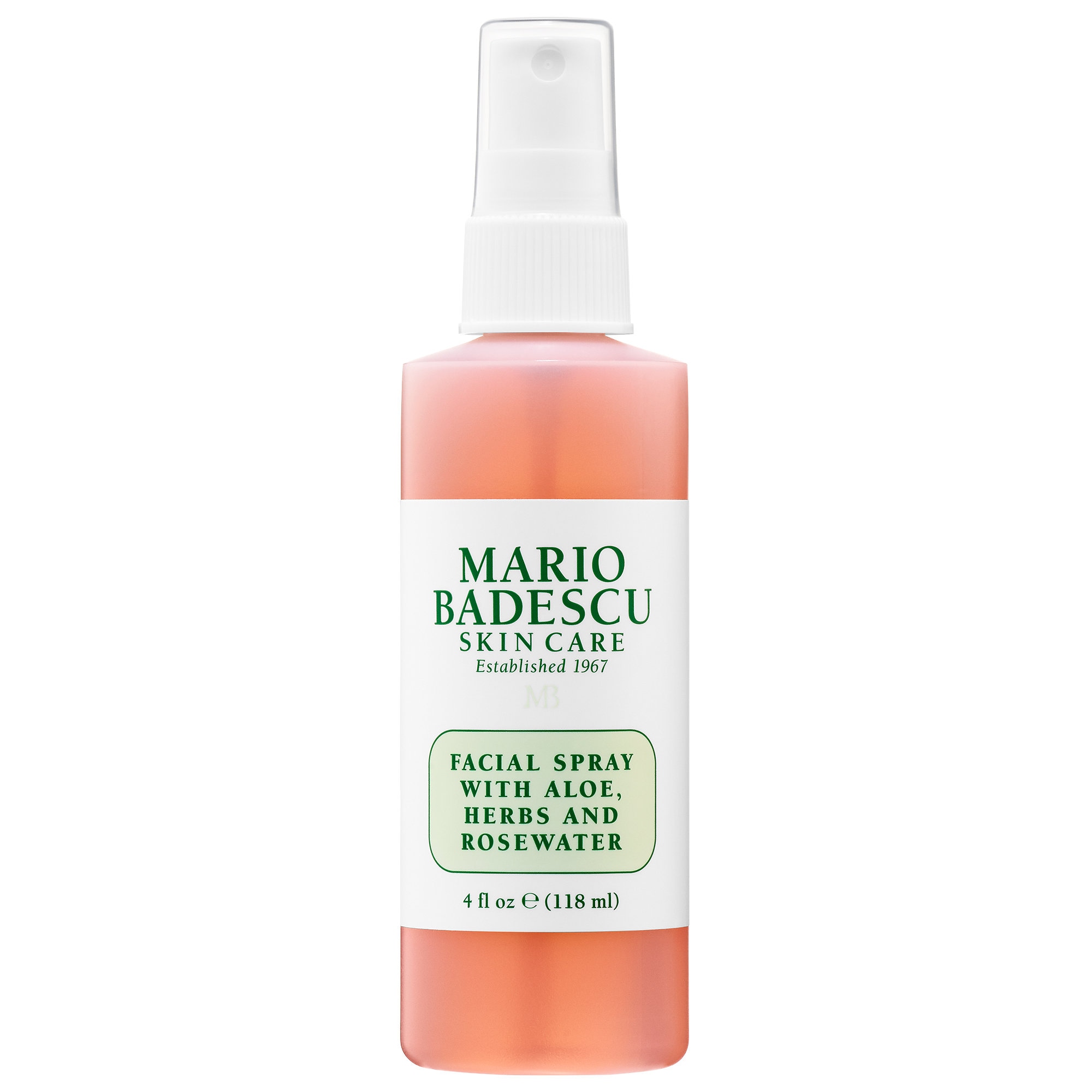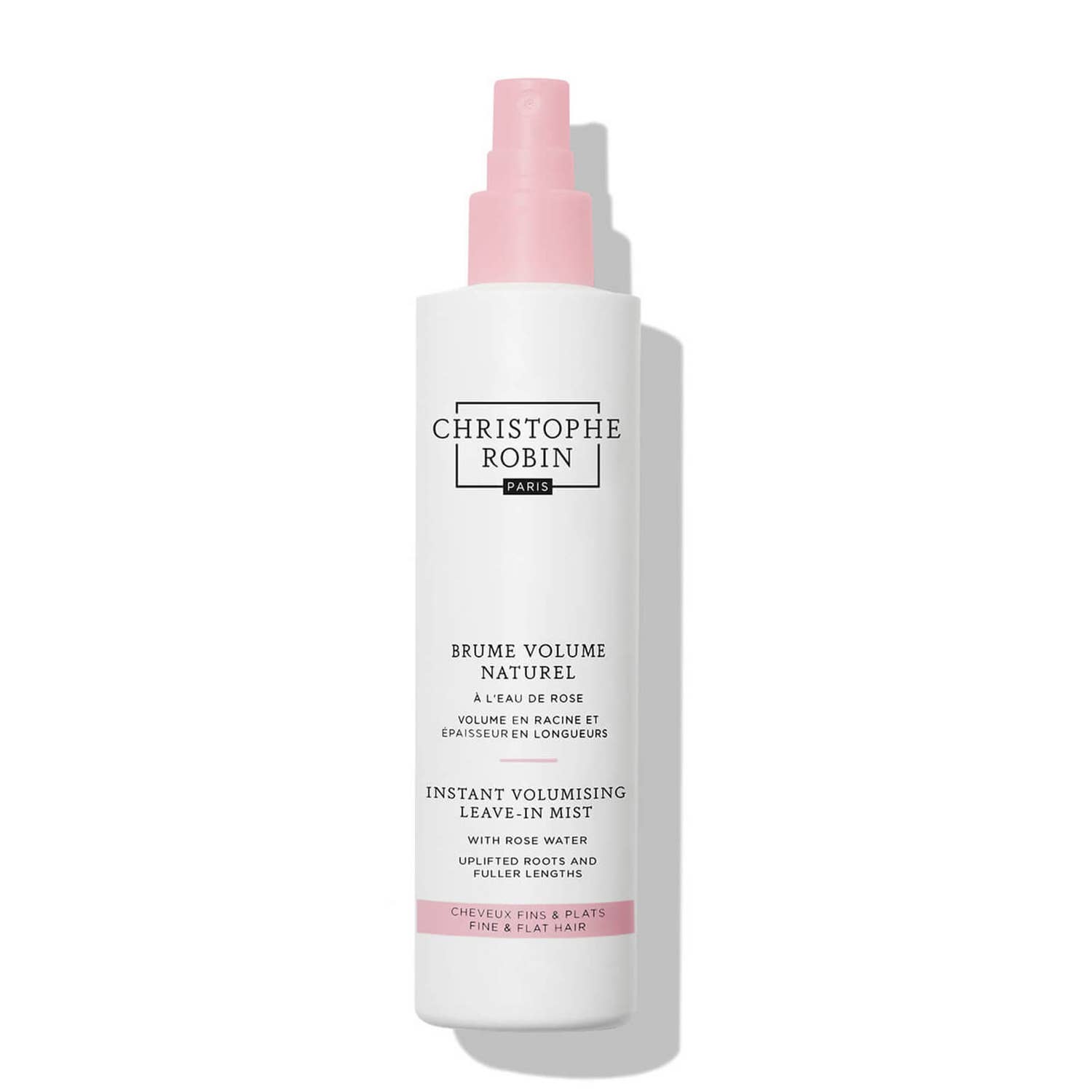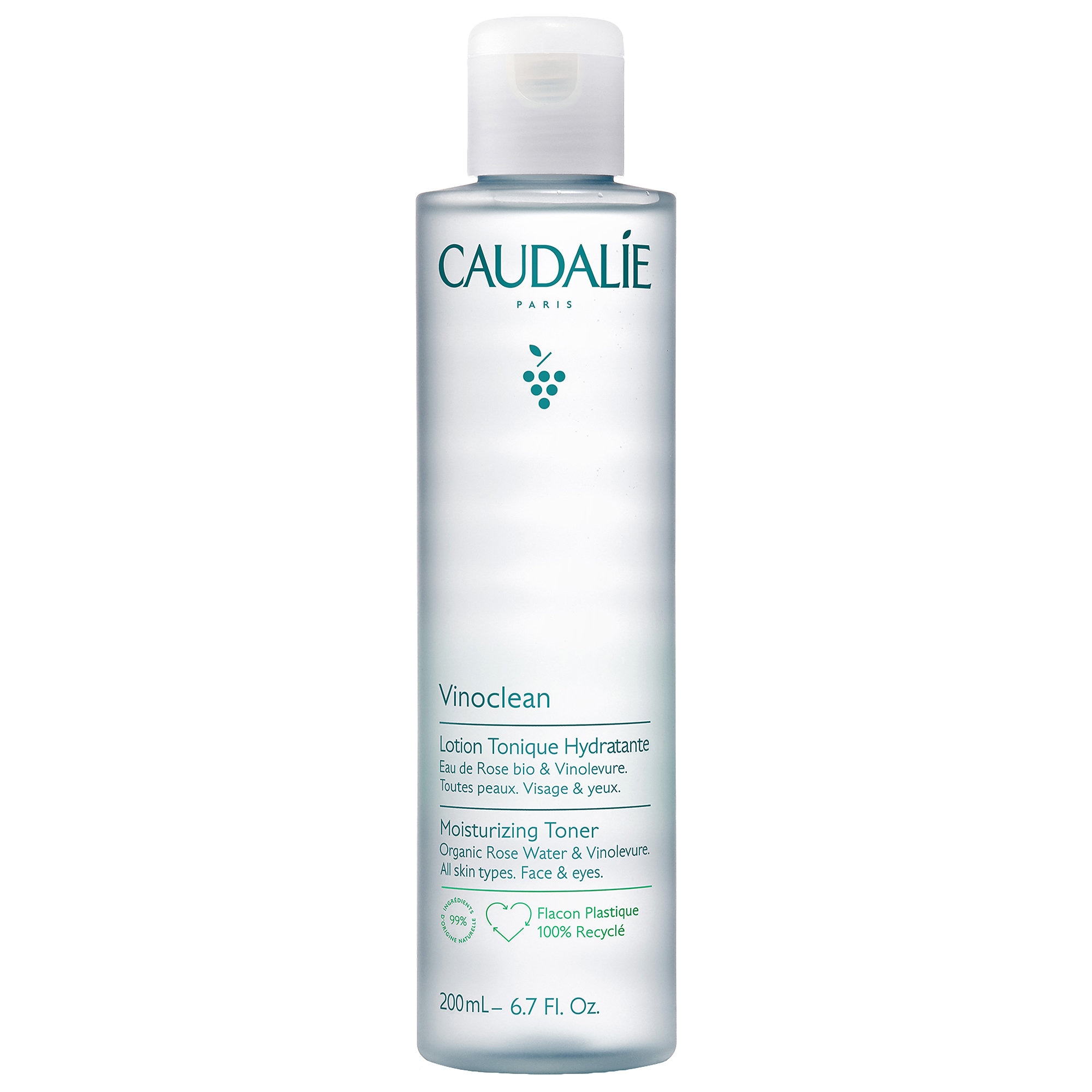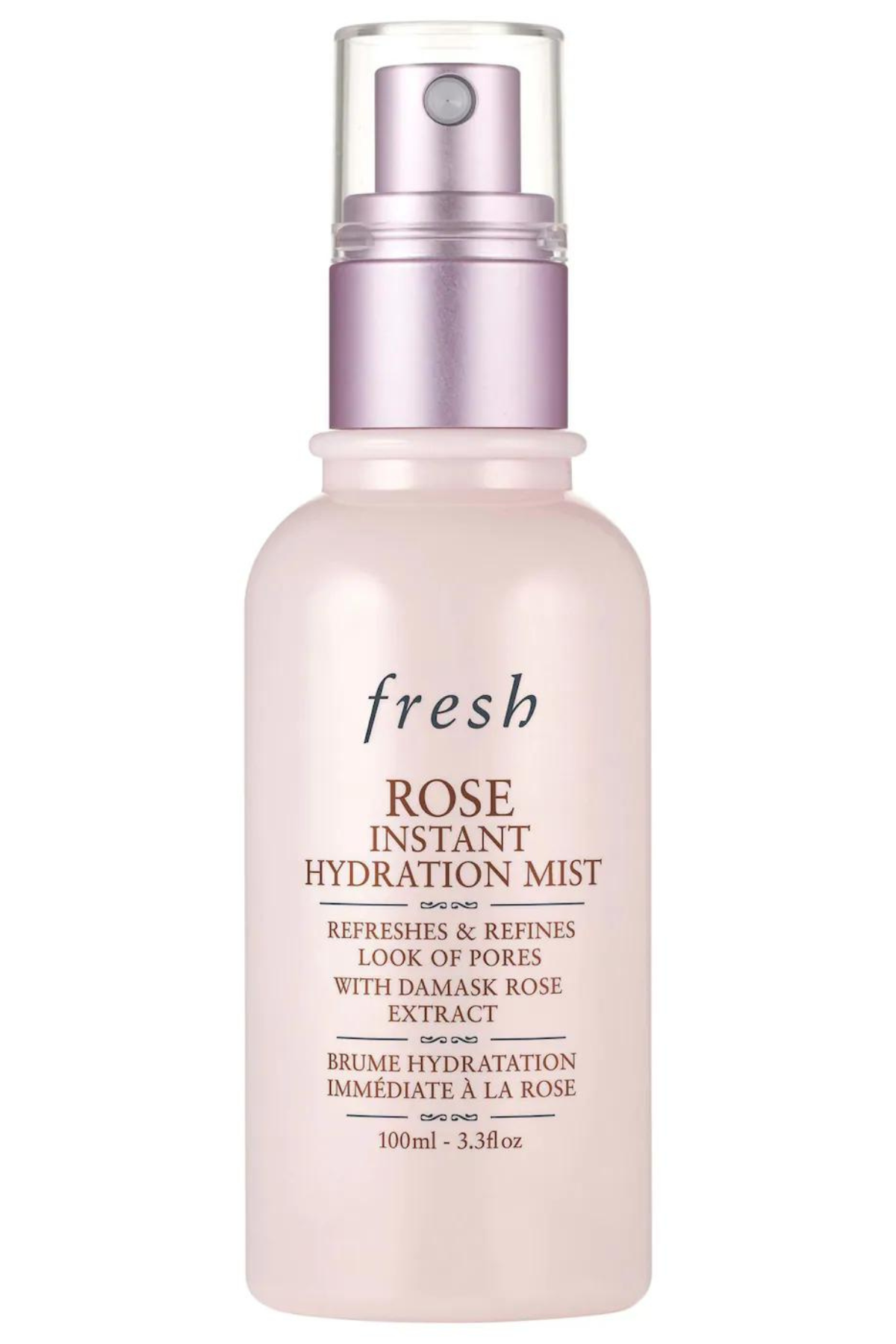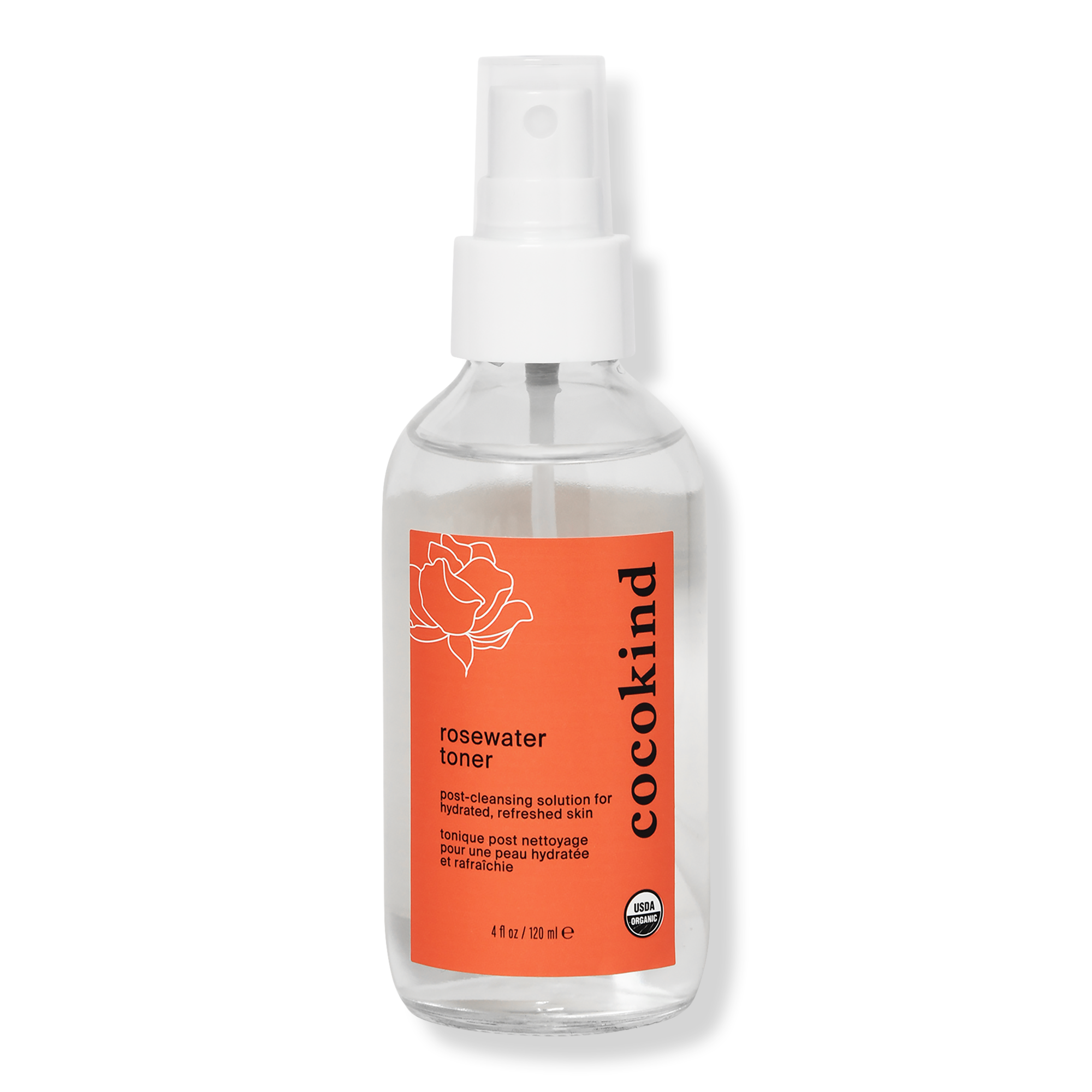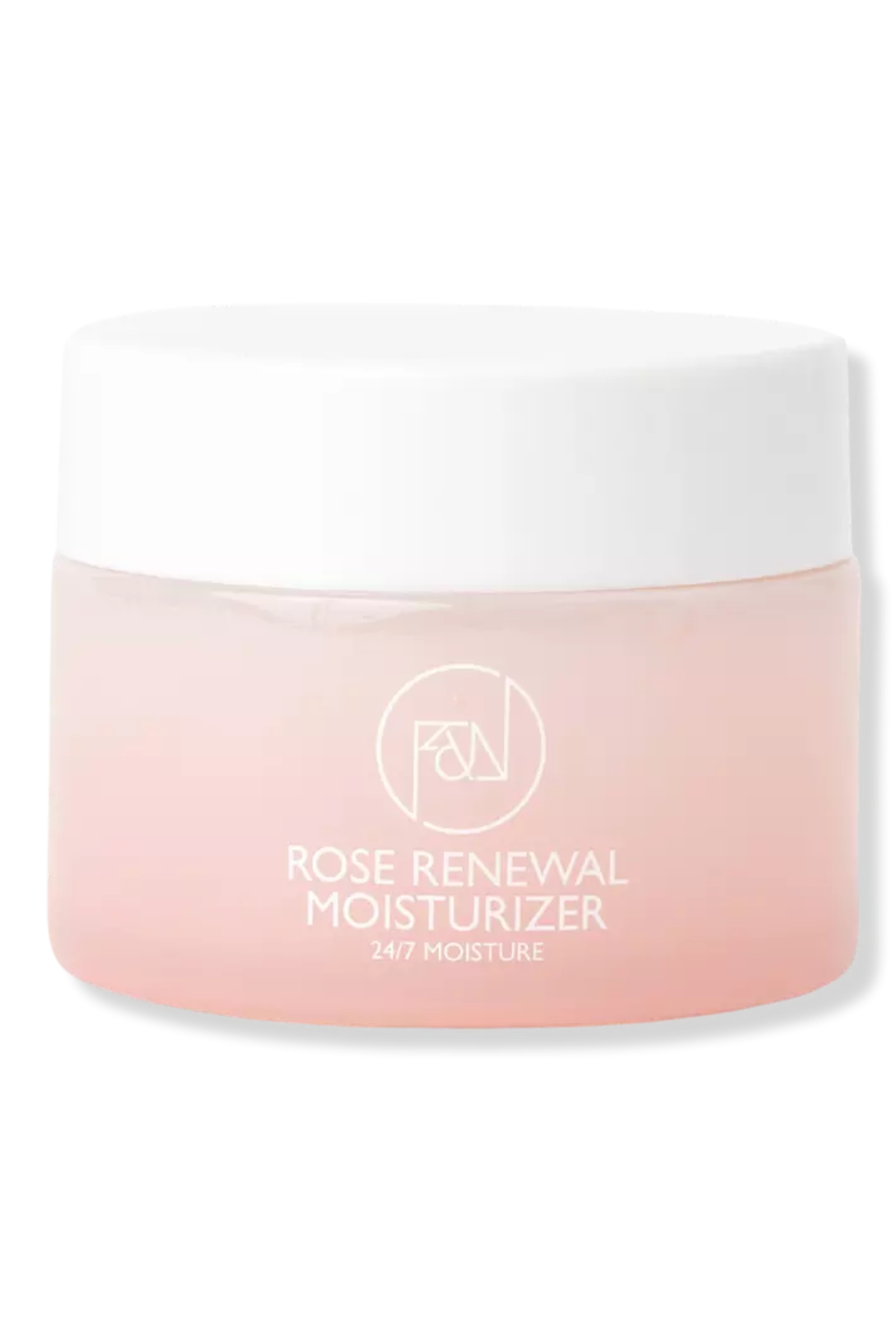Rosewater Could Be Your Next Favorite Skincare Ingredient
It's an anti-inflammatory wonder (with a heavenly scent).
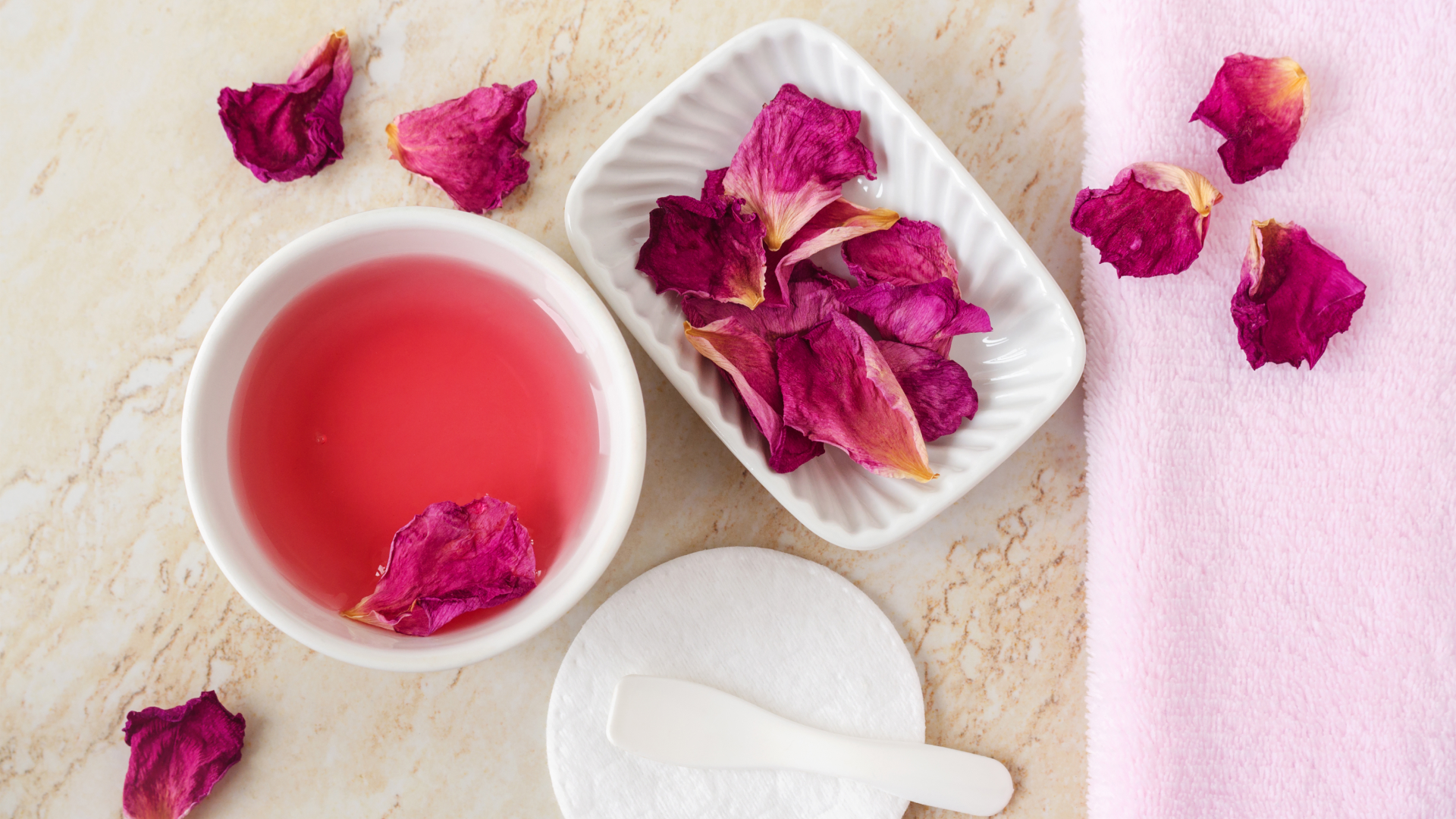

Every other day, beauty’s inner circle seems to champion another ingredient as an end-all, be-all cure for skincare woes from inflammation to acne. Natural remedies like coconut oil, rosemary oil, and castor oil had their moments; so have buzzy, dermatologist-backed ingredients like ecotin and hyaluronic acid. Another natural curative that beauty insiders cite as a skincare miracle? Rosewater, the fragrant pink liquid made from distilled rose petals.
Devotees swear they can't live without rosewater, citing benefits like reduced facial redness and an overall soothing effect. But does incorporating it into your routine really make a difference? If so, how do you use it? Marie Claire asked Dr. Naana Boakye, a board-certified dermatologist and founder of Bergen Dermatology to define rosewater’s uses and benefits. Ahead, she demystifies this purported panacea and advises who should use it (and when).
What Is Rosewater?
Rosewater is a liquid made from rose petals infused into water, much like the way tea and coffee are made. It can be purchased at most food stores and beauty stores, but it can also be created at home using one of two methods. (Be sure that if you're taking the DIY approach, you use roses that haven't been sprayed with harmful pesticides or preservatives. Many people like to use edible roses, just to be safe.)
Not into all the work it takes to make rosewater? No problem. There are a number of skincare products and ready-made formulas for those who'd like to enjoy the benefits of this natural ingredient without any of the labor.
Distillation
Distillation produces the most concentrated rosewater of all. First, place a small, heat-resistant bowl in the middle of a large pot. Add the petals from two to three roses to the pot, taking care not to let them slide under the bowl, and add distilled water to the pot until the petals are covered. Then, take the lid of the pot, position it upside down, put ice cubes in the lid, and set it down on top of the pot. Bring the pot to a boil, refreshing the ice cubes as they melt, and simmer for 30 to 45 minutes. The rosewater will collect in the small bowl via condensation from the lid. Once your rose petals have lost their color, you're all set, and your rosewater should last for up to six months.
Simmering
Get exclusive access to fashion and beauty trends, hot-off-the-press celebrity news, and more.
This is perhaps the easiest, most tea-like way of making rosewater. Simply place the rose petals (about two to three roses) in a saucepan, add enough water to just cover them (too much water will dilute the rosewater), and simmer for 30 to 45 minutes. Rosewater made using this method lasts for up to a month.
The Benefits of Rosewater
Plenty of natural ingredients are touted as cure-alls, but the science isn't always there to back up the claims. In rosewater's case, Dr. Boakye says that the rave reviews may be on target.
"Rosewater has medicinal benefits," she attests. "It can be used for its analgesic, anti-inflammatory, antioxidant, and antimicrobial effects. It is a refreshing addition to any skincare regimen, as the ingredients in rosewater can help relieve inflamed skin and provide additional hydration to areas that could use extra moisture."
All those qualities make rosewater a great option for those who have dry or combination skin. But it doesn't just triage existing issues—rosewater also improves the appearance of skin of any type and, when used regularly, maintains skin health.
"Beyond the more commonly known benefits of rosewater, like its antiseptic, hydrating, antibacterial, and anti-inflammatory properties, rosewater has been shown to have anti-tyrosinase activity, thereby making the skin appear brighter," Dr. Boakye adds. "Rosewater is also packed with antioxidants that protect skin from free radicals and environmental damage, help to reduce the signs of aging, and promote youthful-looking skin." Win, win, and win.
How to Use Rosewater for Skincare
"From toners and cleansers to facial mists and moisturizers, there are plenty of ways to incorporate rosewater into your skincare routine," Dr. Boakye says.
First, you can dab fresh rosewater on your face as a toner—a practice popular in Southeast Asian culture. Layer it under your serums and moisturizers for full effect, dabbing it on with a cotton pad or spraying it on from a bottle.
If you're averse to adding an additional step to your skincare routine, or if you already have a toner you refuse to part with, consider a serum or moisturizer that's already infused with rosewater. Or, opt for a setting spray or hydrating spray packed with concentrated rosewater.
While rosewater is packed with skincare benefits, users should still carefully consider whether it's a fit for their routine.
"Always conduct a patch test on a smaller skin area before incorporating it into and committing to a new skincare routine," Dr. Boakye advises. If no irritation ensues, she encourages skincare enthusiasts to start exploring how they'd like to use it.
Below, find a number of rosewater skincare options, including a few recommended by Dr. Boakye herself.
Who Should Use Rosewater as Skincare
As with all skincare products, rosewater isn't equally beneficial for every skin type and concern. And, as Dr. Boakye mentioned, one should always patch test before committing to a product.
"Generally, rosewater is considered safe for most skin types, but it’s always best to consider individual sensitivities or allergies when trying a new product or ingredient," she explains. "If you notice your skin having an adverse reaction to rosewater usage, stop using the product immediately and consult a dermatologist."
Dr. Boakye adds that it's best not to take chances on irritation-prone skin. Anyone with known allergies or a compromised skin barrier—such as with rosacea or eczema— should avoid testing rosewater. Even this soothing and gentle ingredient can cause reactions resulting in swelling or redness. (The expert notes that even case reports of allergic contact dermatitis have arisen.)
No matter what skin type you have, it's best to play it safe: "As always, closely monitor the skin for any changes," Dr. Boakye advises.
Meet the Expert

Dr. Naana Boakye MD, MPH, FAAD is a board-certified dermatologist and founder of Bergen Dermatology in Englewood Cliffs, New Jersey. A graduate of Temple University and George Washington University, she studied epidemiology and takes a holistic approach when treating her patients.

Gabrielle Ulubay is a Beauty Writer at Marie Claire. She has also written about sexual wellness, politics, culture, and fashion at Marie Claire and at publications including The New York Times, HuffPost Personal, Bustle, Alma, Muskrat Magazine, O'Bheal, and elsewhere. Her personal essay in The New York Times' Modern Love column kickstarted her professional writing career in 2018, and that piece has since been printed in the 2019 revised edition of the Modern Love book. Having studied history, international relations, and film, she has made films on politics and gender equity in addition to writing about cinema for Film Ireland, University College Cork, and on her personal blog, gabrielleulubay.medium.com. Before working with Marie Claire, Gabrielle worked in local government, higher education, and sales, and has resided in four countries and counting. She has worked extensively in the e-commerce and sales spaces since 2020, and spent two years at Drizly, where she developed an expertise in finding the best, highest quality goods and experiences money can buy.
Deeply political, she believes that skincare, haircare, and sexual wellness are central tenets to one's overall health and fights for them to be taken seriously, especially for people of color. She also loves studying makeup as a means of artistic expression, drawing on her experience as an artist in her analysis of beauty trends. She's based in New York City, where she can be found watching movies or running her art business when she isn't writing. Find her on Twitter at @GabrielleUlubay or on Instagram at @gabrielle.ulubay, or follow her art at @suburban.graffiti.art
